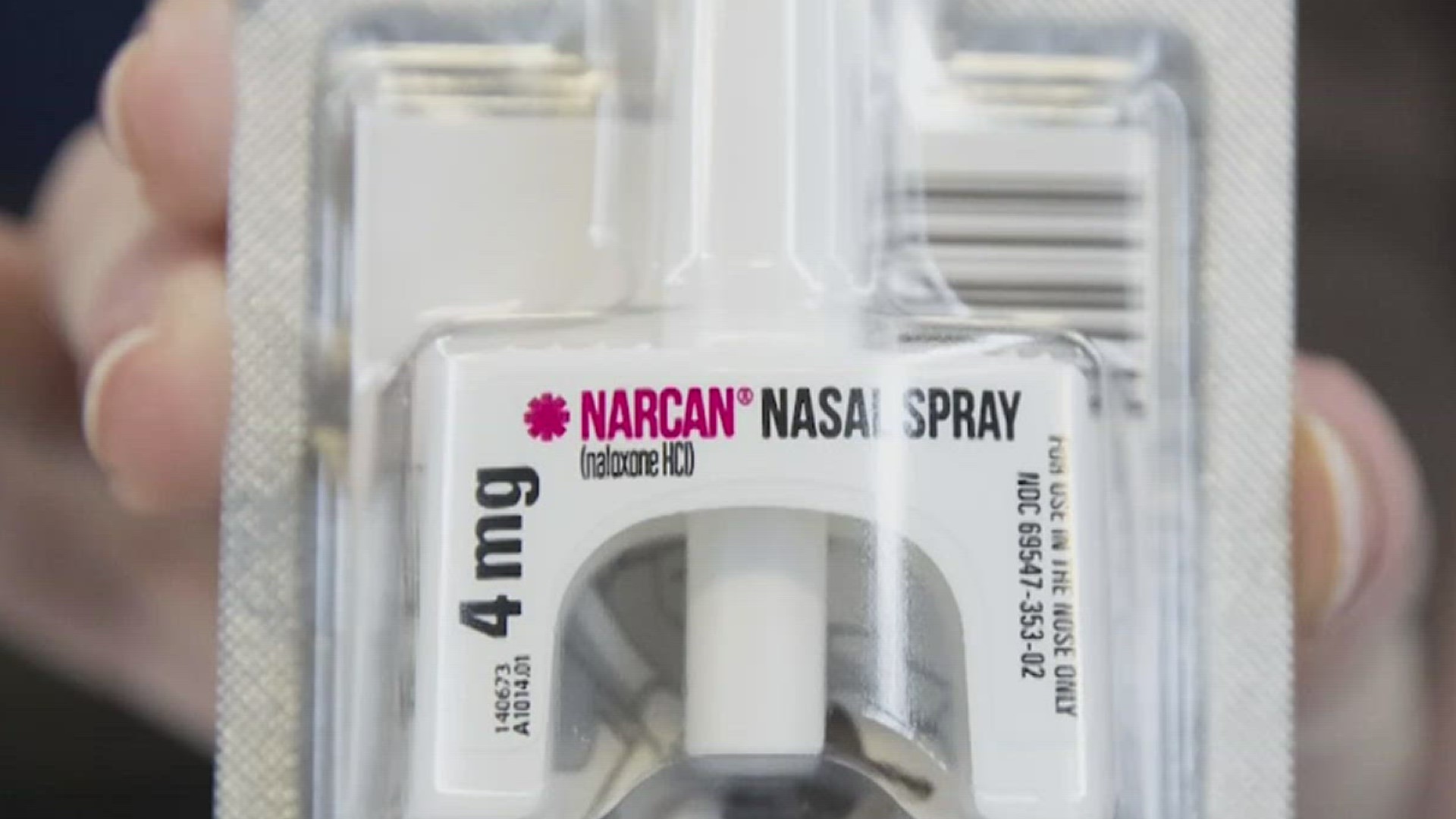CORPUS CHRISTI, Texas — The U.S. Food and Drug Administration on Wednesday approved selling naloxone without a prescription, setting the overdose-reversing drug on course to become the first opioid treatment drug to be sold over the counter.
It’s a move that some advocates have long sought as a way to improve access to a life-saving drug, though the exact impact will not be clear immediately.
Narcan will become available over-the-counter by late summer, the company said.
Dr. Salim Surani joined First Edition Thursday morning to explain how making the drug easier to get can save lives, but also how important it is to educate people on how to use it properly.
"Opioid overdoses are much more common than we think," Dr. Surani said. "Last year, there was almost a 28 percent increase in the number of overdoses."
Dr. Surani said overdoses don't just happen when people use street drugs recreationally, but can happen to someone who accidently takes more prescription pain medicine than needed.
"Either, the opiate you're taking is for pain and you think you have more pain and take an extra pill, or you are using a street drug like fentanyl or heroin- the key factor is when you take the medicine, you have the naloxone, or the antidote, which can be a lifesaver," Dr. Surani said.
"There has been a lot of push to put this drug right out as over-the-counter so people won't be shy going to the pharmacy, thinking it will go into their records, so that's a good step."
Dr. Surani said education on opioid overdoses is still the most important part. Many people who have an overdose may overdose alone or not think to have Narcan on hand.
"Signs are respiration is very slow, you're turning blue or grey, and your pupils are very small and constricted, so it is a family member or friend who needs to know that the patient has taken an overdose," Dr. Surani said.
"We need to educate the people who are surrounding the patients that will respond, and also, once you give it, it doesn't mean it can be over, depending on how much opiate you have taken," Dr. Surani said. "Sometimes you have to make sure that you call 911 or take them to the emergency room to check them out and observe them."
Dr. Surani suggests that everyone have Narcan on hand in case a situation arises where it needs to be given.
The Associated Press contributed to this report.

